At the beginning of September, Israeli students returned for a new school year.
Some of them will soon experience ostracism and bullying by their friends at school, some will receive vigorous beatings during breaks, others will suffer sexual harassment and the distribution of intimate photos without consent.
And there will be young people, the "salt of the earth" according to the definition, who will get involved in crimes and will be sent to prison.
The statistics are not encouraging: in the first half of 2022, 1,251 cases dealing with juvenile delinquency were opened in the prosecutor's office, compared to 1,208 cases opened in the corresponding period in 2021.
Most of the cases opened this year are for violent offenses (534), followed by sexual offenses (255).
The data also indicate an increase in the number of cases opened for possession or use of weapons and weapons.
If in the first half of 2019, 43 cases were opened in the field, this year 84 have already been opened, and every year there is a noticeable increase.
We met in Jerusalem with the forum of representatives of the prosecutor's office that deal with juvenile delinquency throughout the country, from north to south.
Lawyers who during their legal careers have seen everything: severe violence, thefts, armed robbery, rape and even murder - all committed by criminals whose age ranges from 12 to 18.
The forum, which has been active for four years and usually meets once every two months, is not often exposed in the media, and the joint interview before you is considered exceptional.
It seems to me that the first question every parent asks themselves is whether their angel might also get involved in criminal acts.
Attorney Dafna Vakhnish, responsible for the youth field at the Tel Aviv District Attorney's Office, hastens to answer: "Obviously.
We, as parents, do not 'sit' on our children all the time, and they are actually exposed.
More than once my husband and I initiated conversations with our son, and he was always offended by it and said: 'Why do you think I would do such things?'.
We explained to him that we know he is a good boy, but he needs to be aware of the environment and dangers, and be attentive to the desires of girls his age.
"Because of the profession in which I am engaged, our awareness at home of the issue is high. For parents who do not come from the field, and who do not find it in their awareness, the blow can fall with a boom."
Attorney Yaron Saadon, head of the youth field at the Southern District Prosecutor's Office, agrees: "Parents must take an active part in their children's lives.
For me, for example, the best investment I made at home was buying a ping-pong table.
It turned our attic into a place where all my children's friends are drawn, and that's how I get involved and get to know them."
Attorney Dafna Finkelstein, national head of youth and minors at the state attorney's office, who heads the forum of attorneys dealing with juvenile delinquency: "In juvenile justice, the parent is seen as part of what happens in the courtroom.
He is seen as responsible for what happened with the child - and also responsible for the correction that will follow."
Attorney Saadon: "Parents should know that in cases where there is evidence that the parents knew their child was committing a crime and closed their eyes - let's say, a boy who holds a weapon and his father knows and does nothing - the court can be asked to impose a fine on the parent that can reach thousands of shekels."
wrap or choose restoration?
About four years ago, at the end of internal work and analysis, it was decided in the state attorney's office to institutionalize the field of youth, and to separate the method of systemic treatment between minors and adults.
Adv. Vahnish: "Unlike the proceedings against adult criminals, in the case of a minor we introduce additional considerations before filing an indictment and conducting a trial.
I mean looking at the boy or girl in order to try to understand what led them to commit the crime, what was their part in it, how old were they at the time of the act.
The ambition is that before an indictment is filed, we will be presented with an opinion on the circumstances of the boy or girl's life, which is received from the probation service.
It doesn't exist in adults."
The lawyers clarify that when it comes to minors, in most cases they will not go to prison, even after conviction.
Instead, other methods of treatment will be examined for them depending on the severity of the offense, with the aim of returning them to a normal life path.
These are treatments that are adapted to the offense, some are individual, others are group.
They can include weekly meetings at the probation service, and even removing the minor from the home to a closed daycare.
The daycare center is a harsh setting, where the youth lead a strict daily life in changing periods, and their release back into the community is done in a gradual and controlled manner.
Attorney Liat Gilboa-Amir, head of the youth department at the Central District Prosecutor's Office: "Even when we file an indictment, many times our goal is to rehabilitate the minor, so that he does not return to us as a juvenile delinquent.
We are building a therapeutic envelope for the probation service, and are testing how violence and anger control can be treated.
This - in contrast to an adult, for whom a significant punishment is usually requested when the offense is serious.
In the case of teenagers, other avenues are also examined, without forgetting, of course, that there is a victim in the offense committed, so a very delicate balance must be maintained."
How do you really maintain this balance?
Attorney Finkelstein: "We are in constant contact with the victims of the offense, and give them space before and after the decision regarding the offender is made.
There is a procedure called KDM (family discussion group), a model that came from New Zealand, in the center of which there is a meeting between the victim of the offense and the offender. These are usually not very serious offenses. In this case, the victim has the right of veto if he is not interested in the procedure. There are also conditions : The offending minor must accept responsibility and admit the act.
"It's an amazing event. The two minors come accompanied by the most important people in their lives - parents, a scout guide, an educator. The victim says, 'Look what you did to me,' and the perpetrator sees the pain in the whites of the eyes. It's something that works hard. Then we move on to the second part - the repair program ".
There are cases when the offending boy admits his actions and is ready to rehabilitate, but the parents refuse?
Attorney Shonit Kedem-Nimtsen, head of the youth department at the Haifa district attorney's office: "There are cases where the entire framework supports the removal of the offending minor to an out-of-home setting - starting with the attorney's office, through the defense attorney and ending at the court and the probation service - but his parents are the ones who strongly oppose it."
Attorney Finkelstein: "I will give an example from a case I managed.
This is a 17-year-old who hurt his two nephews.
He is in a long and Sisyphean process of the probation service, and has left home for a closed daycare.
The young man went through a deep process, but every time he returned home for vacation - his mother, who is also the grandmother of the victims, wrapped him up and continued to deny what he had already admitted to.
The grandmother's denial not only sabotaged the treatment, but also hurt the victims even more."
Attorney Eilat Palanicki-Ravid, who is in charge of the youth field at the North District Prosecutor's Office, recently handled a similar case.
The worst thing that could happen.
This week I had a conversation with parents whose minor son committed an offense, and he wanted to accept responsibility in court and cooperate.
The meeting of lawyers from the youth prosecutor's office.
From the right: Dafna Vahnish, Eilat Palanicki-Ravid, Dafna Finkelstein, Liat Gilboa-Amir, Yaron Saadon, Alexandra Kara, Shonit Kedem-Nimtsen and Efrat Pilzer-Bizman, photo: Oren Ben Hakon
"I knew that his mother would protect him at all costs, so I sat down with her and explained to her: 'You are the pillar of the house. If you want your offending son to be rehabilitated, and for the victims of his crime to receive the best treatment, cooperate.' I felt that they did not trust the system, so I said: Your son has committed serious sexual offenses. If you want him and the victims to receive a proper response, you need to send a message that you support your son, but not by denying the seriousness of his actions, but by showing awareness of what he did and acknowledging his harm to his nephews."
Attorney Gilboa-Amir: "Yesterday I had a hearing with a defense attorney regarding a 13-and-a-half-year-old boy who started being violent in class, hitting and resorting to physical and sexual violence.
The defense attorney told me that after receiving the draft of the indictment against the minor, he met with his parents, and they realized that it was time to take care of the child.
They took him to the probation service, and went themselves for training in his case.
This is an example of a case where we see parents in the picture, who embrace the child, but also understand that you can choose to rehabilitate him."
The lawyers of the forum emphasize that the treatment of a minor offender also depends on the age at which he committed his acts.
After all, everyone agrees that there is a difference between a child at the age on the verge of criminal responsibility, and a teenage boy who is about to enlist in the army and who in a moment will become the one who will be judged as an adult.
Adv. Vahnish: "I handle the death case - a minor who caused the death of a citizen.
This is a very young child, on the border of criminal responsibility.
The boy said in his investigation that he committed the act because he did not imagine that the result would be death.
He thought that as you see in the movies, if you shoot someone - it's like ketchup, and if you throw a stone on a person's head - he always gets up afterwards.
As a lawyer, you hear something like this and have to deal with it.
This is a child for whom even a Bar Mitzvah was not celebrated.
tad".
A boy suspected of rape in high school is brought to court, 2021. "With young people today, you can really feel the decrease in the degree of empathy", photo: Gideon Markowitz
How do you legally treat the defense claim that the child raised?
"I consider things seriously. If a 17-year-old boy told me these things, I would say, 'Well, really,' even if it was his first run-in with the law. But when such a young child comes along - I can't say wholeheartedly That I accept his words, but I do take them into account."
The nannies harmed the children
Attorney Efrat Pilzer-Bizman, head of the youth field at the Jerusalem District Attorney's Office, knows the issue from her own area as well. "We have populations of all kinds, and many times we see young children, 12 years old or so, who get carried away with the current.
'They went to demonstrate, they threw stones, so I threw too.'
The same stone can hurt and cause significant damage, and there have been such cases.
On the other hand, there is a 12-year-old boy sitting in front of you who sometimes acts like a 10-year-old and says 'everyone has done it'.
According to him, if he doesn't go with them - then they won't talk to him in class."
Does remorse in minors have weight?
Adv. Vahnish: "Yes, if the minor undergoes a significant therapeutic procedure and we get the impression that the remorse is sincere.
But let there be no impression that we will not file an indictment in any case where a minor sexually offends and then accepts responsibility for it and is ready to rehabilitate.
I handled the case of a perfectly normal boy, seemingly salt of the earth, who really could have had a bright future.
He sexually assaulted a little girl while babysitting her.
The boy accepted responsibility from the first moment and was committed to treatment - but we still filed an indictment against him, because the acts he committed were serious.
"We remember that here there is an injury to the faith and the body of a small, soft girl, whose life was destroyed, because she went through treatments and will go through more. We filed an indictment against the abuser, and the probation service recommended ending his case without a conviction, only through treatment. We insisted on a conviction, so that they would see And they will see. The court accepted our position, convicted and took treatment methods that we agreed to."
Attorney Saadon. "It is possible to impose a financial fine on the parents", photo: Oren Ben Hakon
Attorney Palanicki-Ravid: "I had two cases involving two nannies who sexually assaulted two children.
In one of the cases it was recommended to file an indictment, and in the other two the probation service recommended not to file.
The girls cooperated from day one, admitted and did everything that was asked of them.
I said to myself, 'wait, in 15 years the child who was hurt will ask: what happened to the person who hurt me?'
Although we are not psychologists or social workers, we know that the consequences of sexual offenses are long-term.
"I said that here there are victims of the most serious offenses in the Penal Code, and that I must speak for them, so that they know that the state has responded to their harm, along with the understanding that there are therapeutic needs for the victims. The goal of the criminal procedure is not only treatment, but also justice for the victims of the crime. There is meaning to the criminal procedure in cases of serious offenses, even when young offenders are involved."
Attorney Pilzer-Bizman, from the Jerusalem district, wishes to remind that it is necessary to take into account the question of why the boy or girl chose the criminal path. "Many times the offending minors were themselves victims.
We see children who have been exposed to violence between their parents, or violence towards them.
This is the tool they know, this is what they know how to do - and they do it to others.
When a minor comes who has hurt you and you know he was hurt himself, we will treat him differently - without forgetting of course the hurt he committed."
Attorney Finkelstein: "There is the famous sentence that the educator Janosz Korczak said at the time: 'There is no bad child, there is a child who is bad for him.'
We proceed from the premise that in 98% of minor cases, they end up committing a crime not because they are criminals.
We see a large correlation between the situation at home, or personal attention and concentration problems or learning disabilities, and committing a crime.
A lot of reasons that produce the ejections out of the framework, and in the end also manifest themselves in the commission of offenses."
"The corona accelerated processes"
Today, quite a few of the vulnerabilities among teenagers occur online, on the mobile device.
Intimate photos are first passed innocently to a boyfriend or girlfriend, and from there reach the eyes of the whole class.
Three years ago, an indictment was filed against a 17-year-old boy from Kfar Saba who distributed nude photos of girls and opened hate pages against them on Instagram.
Two years ago, a 14-year-old girl from Ashdod filed a complaint with the police claiming that her ex-boyfriend had distributed nude photos and videos of her without her knowledge.
"The corona may have accelerated the process for young people, but you can really feel the decrease in their empathy and their ability to read others," says Attorney Finkelstein. "We are not talking about teenagers who are less connected or less smart.
These are processes that go through society as a whole, and we see their ripples in the criminal procedure."
Adv. Vahnish. "The blow can fall with a boom", photo: Oren Ben Hakon
Attorney Saadon says that in his district, South, the attorneys who deal with youth undergo in-depth training. In one of them, they met with a representative of the national student council, in order to hear his opinion on the phenomenon of the distribution of intimate photos. "He told us: 'We don't see it that much. harshly'.
They don't attach great importance to it."
Attorney Kedem-Nimtsen, from the Haifa district, reveals that as part of the fight against the scourge of indifference and the lack of understanding of youth regarding the seriousness of their actions, she and many of her fellow lawyers give lectures in schools with the aim of clarifying to young people where the boundaries are. "There is a national project called 'Messer', and its framework community
We usually come to the 9th-10th grades to explain about the criminal procedure.
"I open my lectures by detailing behaviors that the young people in front of me may not see as serious, but they should know that they sometimes have criminal significance. There is an entire system within this framework that deals with cybercrime. In the lectures, he divides the students into groups, gives them an event to analyze and allows each side to understand what happened In it. For example, in the case of the distribution of intimate photos: who watched, who took the photo, what the meaning and blame could be at the social level or at the criminal level."
Attorney Gilboa-Amir: "I have a case involving a complainant, a 15-year-old girl, who sent an intimate picture of herself to someone she was in contact with.
He promised that the photo would stay with him, but when he received it he had a friend with him who took a photo - and passed it on.
The poor girl, who thought that no one would see the picture except the young man to whom she sent it, quickly realized that she was exposed to the eyes of the whole class, and for her, her life was ruined at that moment.
She had to move school and apartment, which is a terrible thing, heartache.
"On the other hand, the person who took and distributed the photo was a minor himself, 15 or 16 years old, and an indictment was filed against him. He underwent a rehabilitation procedure, and he wishes to enlist in the army. He regrets and apologizes for what he did, which again raises the previous question of balance." .
Attorney Alexandra Kara, who is in charge of the youth field in the cyber unit at the State Attorney's Office, was also present at the attorneys' meeting, who is very familiar with the issue of cybercrimes. According to her, this is an area where the law enforcement and justice systems take a harder hand today than in the past.
"In recent years, there has been a value statement by the courts about offenses in the 'Videos Law' (Amendment No. 10 to the Law for the Prevention of Sexual Harassment through the Distribution of Content of a Sexual Nature on the Various Media; AL), which make it more difficult for the young people who distribute it," she says Advocate Kara.
"When you say it's not a criminal offense, it's a basic misunderstanding. When you share photos, even if you didn't take them yourself, it's a crime, and the tendency of the system is to file charges - so they can see and be seen."
According to Attorney Palanicki-Ravid from the North District, these offenses no longer characterize only high school students, but go back to much younger ages. And a month, they just copied and pasted in life what they saw on the screen.
At such an age do they understand what they have done?
They need to go through a significant therapeutic procedure, and here we return to parental presence and a discussion that should be conducted at home, why parents know about what their children are doing."
Attorney Saadon points out another problem: "There are more conservative groups in Israeli society, where sexual education is not developed.
When there is exposure to pornographic content, there is underreporting.
In many cases of sexual offenses we understand that it is a combination of young age and a lot of trial and error.
A system of pressures, impulses and hormones.
In my opinion, if the child had received a proper education - most likely the offenses would not have been committed."
The attorney read: "I also look at this with my hat, as the supervisor of the field of crime victims.
Quite a few of the cases that came to my attention came from parents who checked what was going on in their children's cell phones, and found there sexually offensive conversation that the children did not report.
So I'm not asking the parents to check boys and girls aged 15-16, but it's probably worth checking children who start using smartphones, and hope that if we start monitoring them at a young age - then at an older age we won't have to snoop on them anymore."
Attorney Finkelstein. "Parents, keep an eye open, be there", photo: Oren Ben Hakon
"Things we haven't come across"
In the first half of 2022, 223 indictments were filed against minors, about half of them (103) for violent offenses.
This is a decrease compared to 2021, when 257 indictments were filed.
On the other hand, it is impossible to point to a positive trend, because it is still a line of increase compared to the previous years.
Are there new trends in juvenile delinquency?
Adv. Kedem-Nimtsen: "There are phenomena that in recent years we have noticed that teenagers are becoming dominant in them.
In my district, Haifa, it is the maintenance of weapons, mainly for others, but also personal maintenance.
In the last two years, I handled three murder cases committed by teenagers, at all levels of intent - from aggravating circumstances to indifference.
We will all agree here that we have not encountered these phenomena before, certainly not at this level.
Arson has also become a very common phenomenon among teenagers."
As representatives of the prosecutor's office, you must come across young criminals whose treatment does not help, those who will also star in the coming years in the criminal sections.
Adv. Vahnish: "Sometimes a defense attorney comes to a meeting with us, and in advance says: 'Let's end the case with a conviction and an agreed upon sentence.'
He doesn't talk about treatment methods at all, because he knows who his client is and what he did, and he also knows what the probation service says about him."
Adv. Saadon: "There are minors aged 16-17 who live in a criminal group, and very much consider what they will say about them there.
They are not ready to hear about a therapeutic channel, neither about an out-of-home setting nor about treatment in the community.
They want to know the price of the bag.
These criminals know that the court will not be harsh with them, so they say 'give the punishment now'.
Six months, even a year and a half, the main thing is to finish.
"I recognize them, and they will come back to us, and I have no tolerance for them in the settlements we reach. On the other hand, when there is a minor whose defense attorney comes and speaks in his favor, there is the beginning of a process, and I am in contact with the victim of the crime. There I have a lighter hand on correcting a report The charge. A minor who says 'give punishment' - from me he will get the maximum."
Isn't that frustrating?
"Even at these stages I will offer community service - a severe punishment for minors - and it will be more than six months. Why? Because between six and nine months the minor must go through the probation service one more time, and it is possible that then he will be recruited for treatment.
"I'll tell you what's frustrating. I had a case of robbery for which I agreed for the young man to go to treatment. He arrived at a pre-military training school, he was about to enlist in the army - but during community service hours (public service; AL) he stole money. He He went to jail. It was frustrating."
Frustrations, it turns out, are the lot of quite a few of the members of the lawyers' meeting.
"I, in the Jerusalem district, have the opposite case, of a minor who had a terrible life and we didn't want to add an indictment to her," says attorney Pilzer-Bizman. '.
There was hope - but the minor failed.
Somewhere I felt that due to his difficult background, I should perhaps have gone with him to a framework with clearer boundaries, and perhaps we would have saved him a year in the processes he went through."
The lawyers' meeting, this month.
"The law in Israel is very minor-oriented, and it maintains that the minor who committed an offense can return to society", photo: Oren Ben Hakon
For some of the youth, the crime they committed will destroy the rest of their lives, and even if they try - they will not be able to escape from the hundreds of kein that will be affixed to their foreheads, depending on the severity of the act.
On the other hand, there are cases where time will heal the wound, since today there are strict restrictions on providing information from the criminal registry regarding minors - information that is only given in special cases, or by order.
The criminal record is also erased today after a relatively short period: a minor who was convicted of a crime and was not sentenced to prison - his criminal record will be erased within five years.
A minor who was sentenced to prison - the registration will disappear within seven years.
"The law is very minor-oriented, and it ensures that the minor will be able to return to society and that those who do not need to know about the criminal record will not," concludes Attorney Finkelstein.
Is there room for optimism, or are we headed for a bleaker future?
Adv. Vahnish: "Obviously there is room for optimism.
Come to my room in the Tel Aviv district and see how different it is from other rooms in the office, how optimistic it is in its colors."
Attorney Pilzer-Bizman: "We have recently been working with a youth promotion group in Jerusalem, and not long ago someone who had undergone rehabilitation in the past came in as a guide.
A guide like him can now be a listening ear for a minor who arrives, and show what success means in the rehabilitation process, how one can later become a professional who earns money and promotes others.
It's the most optimistic that can be."
Attorney Finkelstein from the State Attorney's Office, who has 24 years of experience, also refuses to lose hope. "Our youth are good," she says. "Today there are many welcome phenomena of mobilization for the community, volunteerism, awareness and inclusion.
There is a lot of room for optimism, and even for those who are discouraged - there is something to work with.
We will always remember that these are the first stages of life, so it is important not to work from the gut, or to act out of feelings of revenge, but to come from the parental place.
"I always say that it is important to understand that after all - these are teenagers. That is why the family is a very significant factor. Minors can do 'Abu Ali', give the impression that they are managing on their own, but in the end there is something primary in them that calls out to their parents. So as lawyers we say : Open your eyes, be there."
shishabat@israelhayom.co.il
were we wrong
We will fix it!
If you found an error in the article, we would appreciate it if you shared it with us

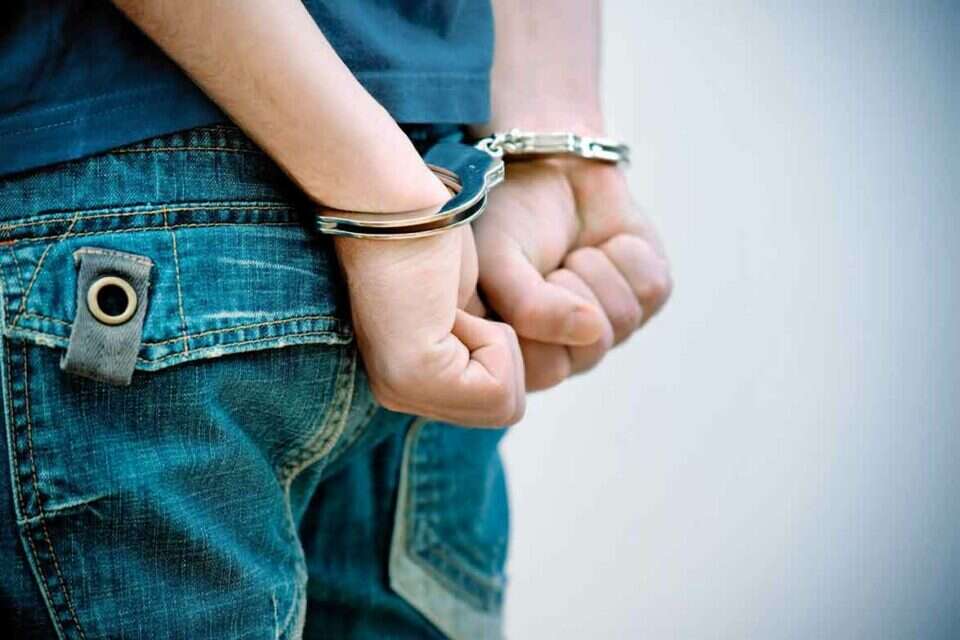
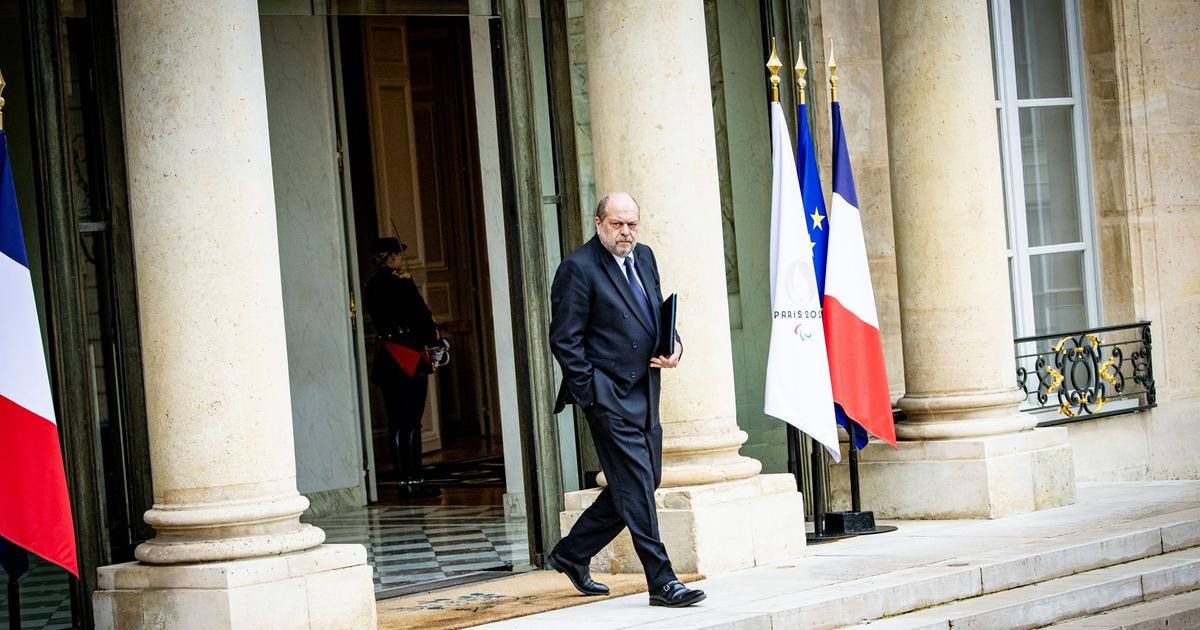
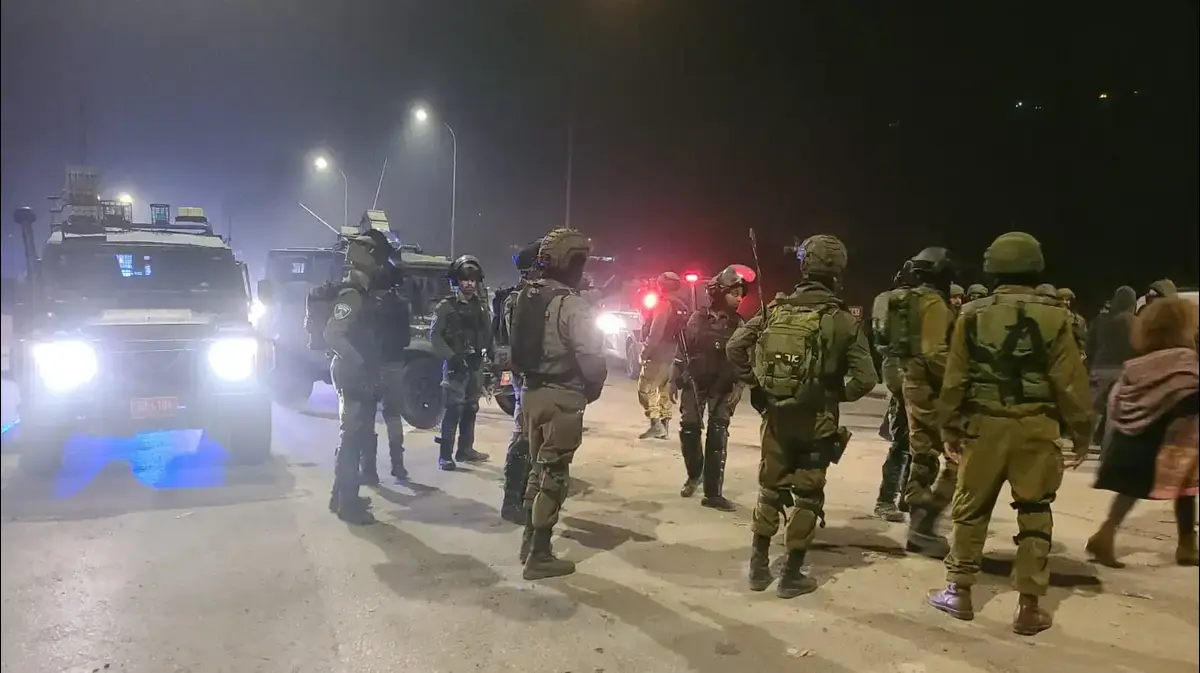
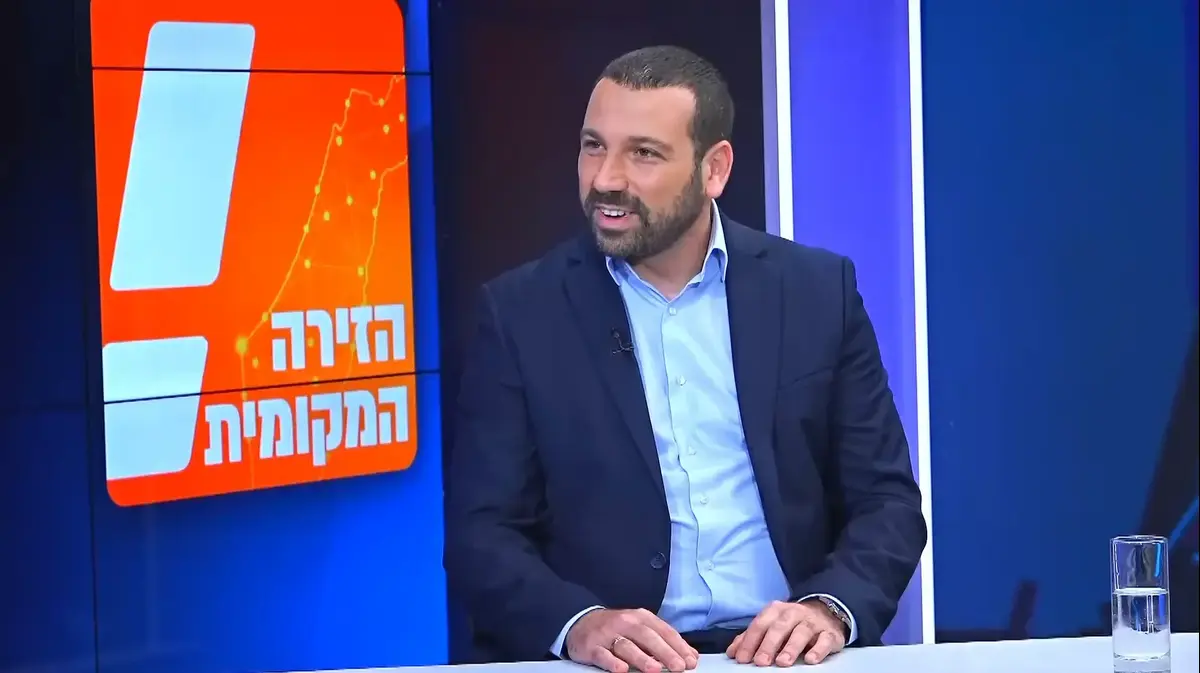
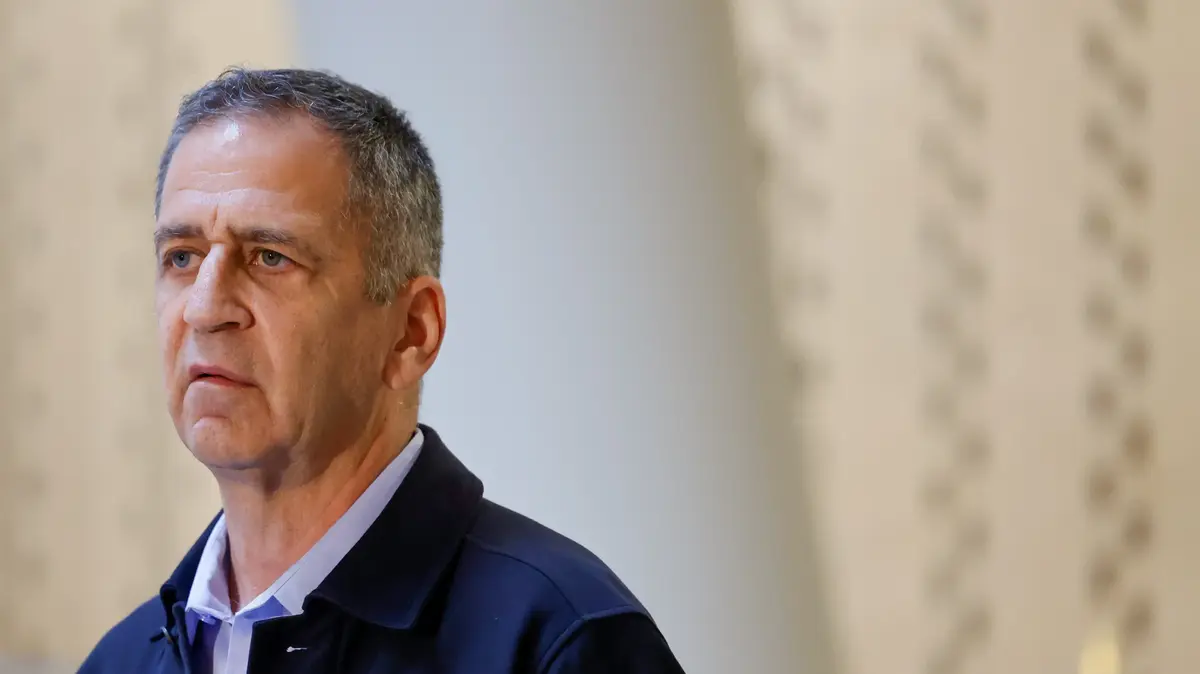

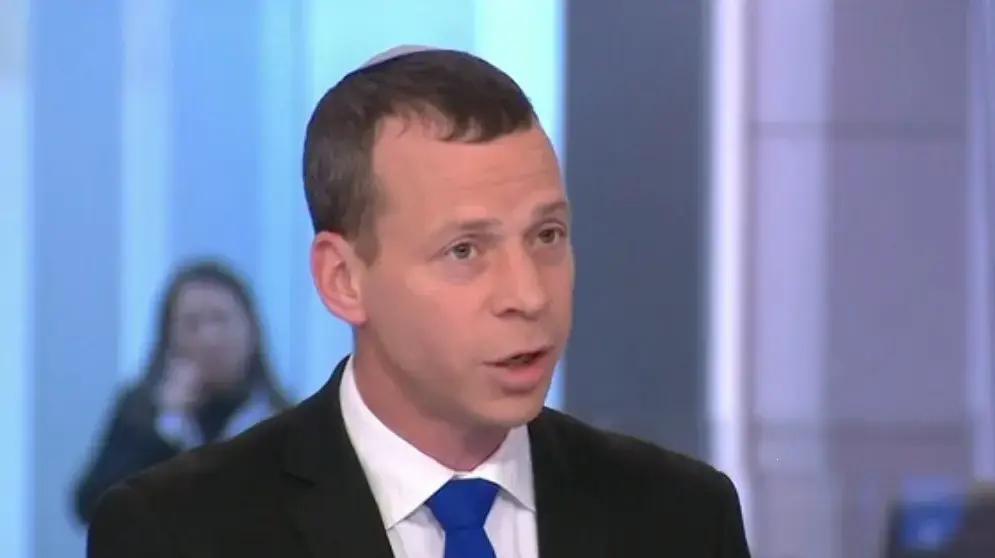



/cloudfront-eu-central-1.images.arcpublishing.com/prisa/KMEYMJKESBAZBE4MRBAM4TGHIQ.jpg)



